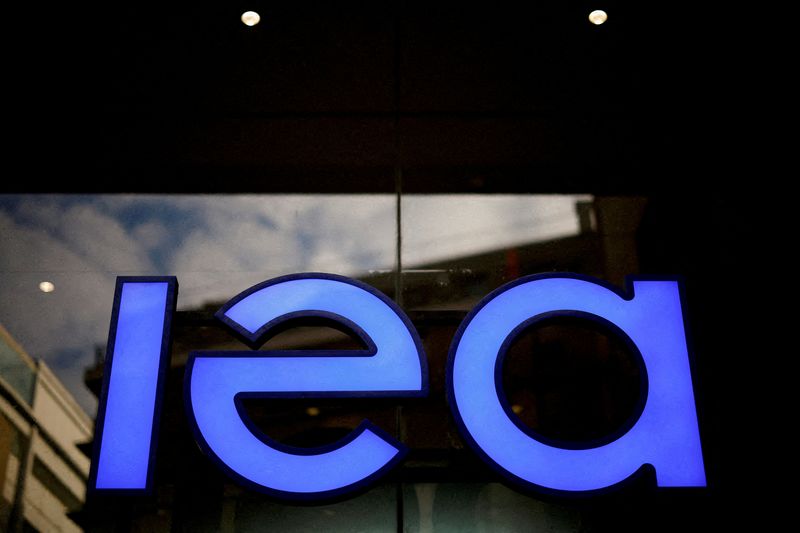BELEM, Brazil (AP) — Indigenous peoples are used to adapting. When the power went out at their kick-off event for this year’s United Nations climate negotiations, they took part. Participants from all over the world sweated with singing, dancing and prayers, improvised without microphones and cooled themselves with fans made of paper or leaves.
But the bad timing of the blackout fueled an undercurrent of skepticism that this year’s summit – dubbed the “COP of Indigenous Peoples” – will fulfill organizers’ promise to put them front and center at the event on the edge of the Amazon rainforest, where many indigenous groups live.
Indigenous peoples protect much of the world’s biodiversity and are among those contributing least to climate change, but are disproportionately harmed by the devastation it causes.
“We work within a mechanism and we work within an institution that we know was not created for us,” said Thalia Yarina Cachimuel, a Kichwa-Otavalo member of the A Wisdom Keepers Delegation, a global group of indigenous peoples from around the world. “We have to work ten times harder to make sure our voices are part of the space.”
This year’s climate negotiations, which run until November 21, are not expected to result in an ambitious new agreement. Instead, organizers and analysts are calling this year’s conference an “implementation COP” aimed at making good on previous promises.
A conference that is not easy to attend
Indigenous peoples have long been left out or marginalized in the climate negotiations – known in this year’s edition as the Conference of the Parties, or COP30.
Many are not well represented in the governments that often forcibly colonized their populations. Others face language barriers or travel difficulties that prevent them from reaching conferences like COP30.
The Brazilian government said hosting this year’s summit in Belem was partly a tribute to indigenous groups able to live sustainably in the world’s wild areas.
But indigenous groups, like other activists, have traditionally not been included in climate negotiations unless individual members are part of a country’s delegation. Brazil has included them and is calling on other nations to do the same. It was not immediately clear how many did so in Belem.
But there is a big difference between visibility and inclusion at the core of negotiations, Cachimuel said.
“Sometimes that’s where the divide is, right? For example, who gets to go to the high-level climate, who gets to go to the high-level dialogues, you know, who are the people who meet with states and governments,” she said.
She feared that inclusion efforts would not be continued at future COPs.
Edson Krenak, a member of the Krenak people and Brazilian manager of the indigenous human rights group Cultural Survival, said he has seen less participation from the indigenous population than he expected. He attributed this in part to the difficulty of finding accommodation in Belem, a small city that has struggled to quickly expand accommodation options for COP30.
He said it was frustrating when Indigenous peoples were not included in policy development from the outset but were expected to comply with them.
“We want to design these policies, we want to be involved in really dreaming solutions,” Krenak said.
Still, the fact that this COP is taking place in the Amazon “makes indigenous peoples the host,” said Alana Manchineri, who works with COIAB, an organization of indigenous peoples of the Amazon basin like herself.
We fight to make voices heard
When the Indigenous People’s Pavilion opened, the lack of electricity wasn’t the only problem. The moderators did not have an official translator.
One moderator, Wis-waa-cha, from Coast Salish and Nuu-Chah-Nulth countries, said a lack of attention to such details can leave people feeling “constantly dismissed in a very passive way.”
The Brazilian presidency’s office did not immediately respond when asked why a translator was not available for the event. They said they were working to resolve the power outage as quickly as possible.
World leaders should focus on directly funding the communities that need support, said Lucas Che Ical, who represented Ak’Tenamit, an organization that supports education, climate change and health initiatives in indigenous and rural villages in Guatemala.
He knows that agreements reached at previous COPs often did not have a direct positive impact on the lives of indigenous peoples. He hopes things will be different this year.
“I’m an optimistic person,” he said in Spanish. “There is the prospect that there could be good results and that the governments that decide could make a positive decision.”
Above all, he hopes that decision-makers at this COP can “listen to the voices of indigenous villages, local communities and all villages in the world where they live in poverty and who are part of the impacts of climate change.”
___
Follow Melina Walling on X @MelinaWalling and Bluesky @melinawalling.bsky.social.
___
Associated Press climate and environmental reporting receives funding from several private foundations. AP is solely responsible for all content. Find the AP Standards for Working with Charities, a list of supporters, and supported areas at AP.org.
Join Our Job Update Communities
Get fast job alerts, remote opportunities & visa updates instantly.



